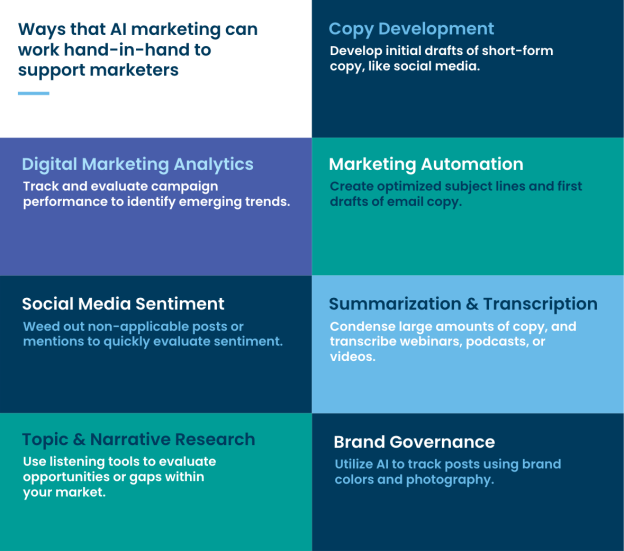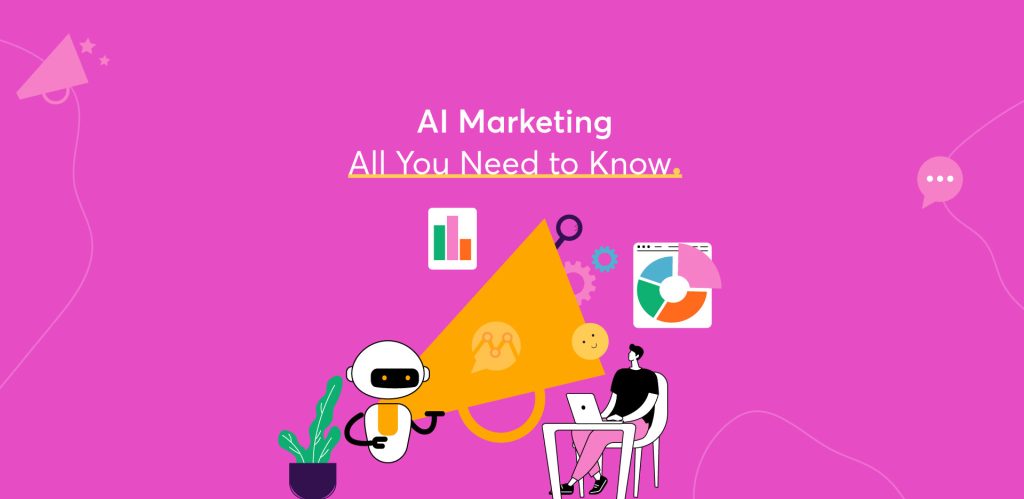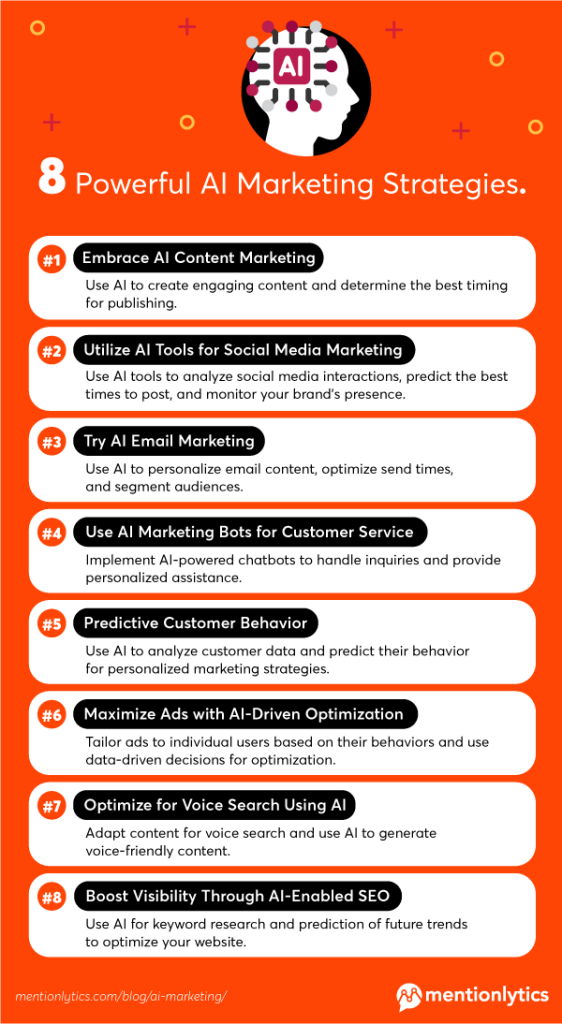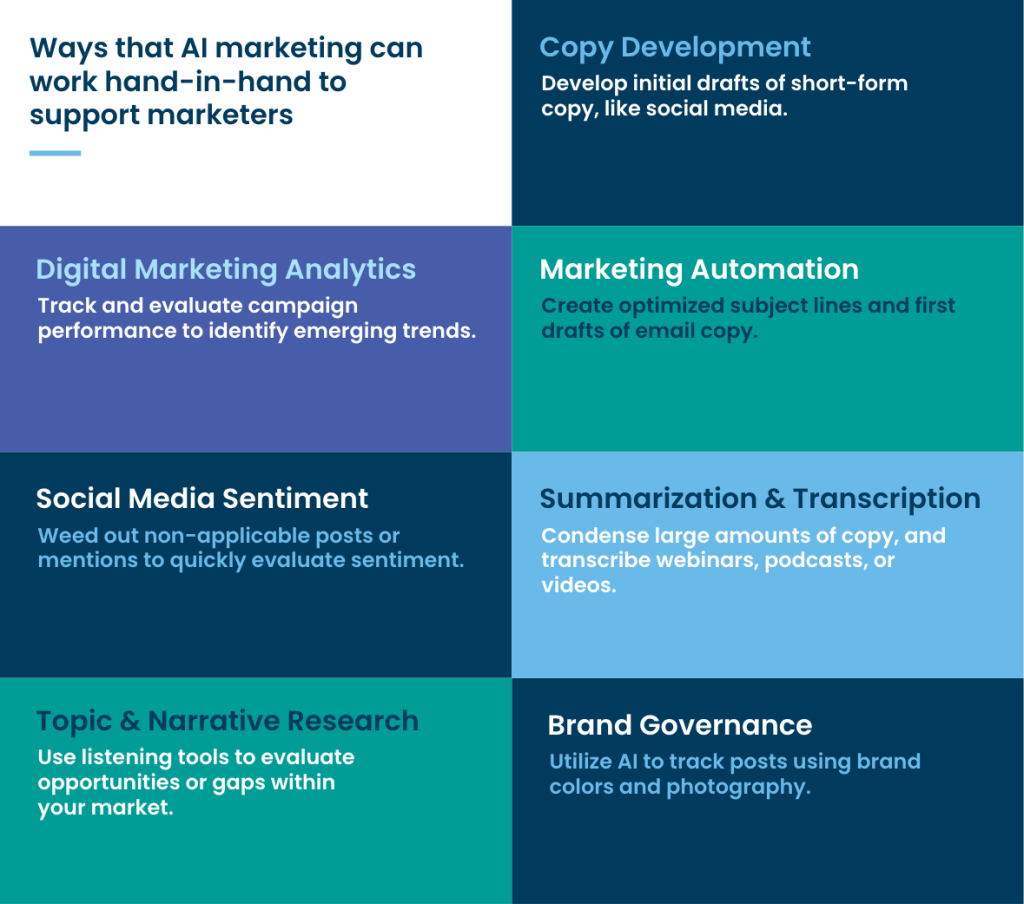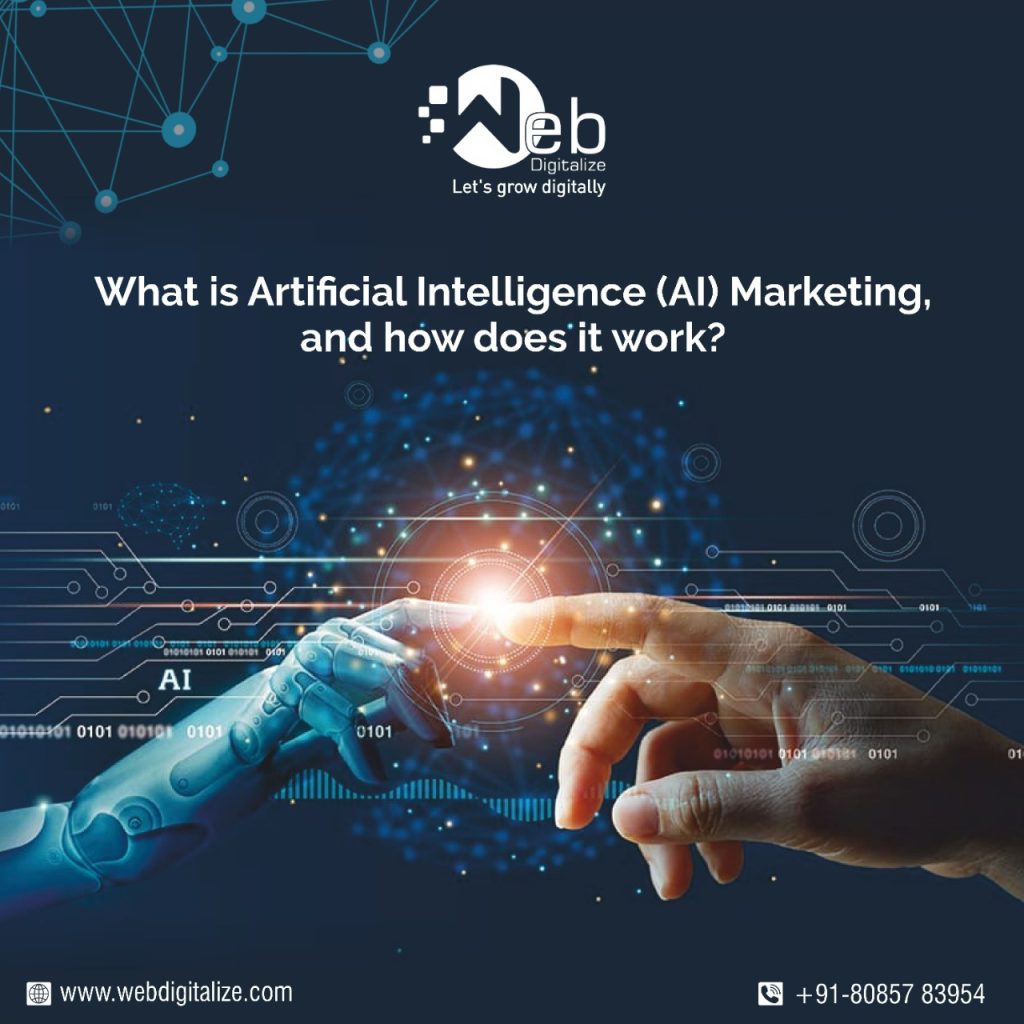So you’ve heard about AI marketing tech, but what’s new in this rapidly evolving field? With advances in artificial intelligence, the latest developments in AI marketing tech are revolutionizing the way businesses connect with their customers. From personalized chatbots that can engage in natural conversations to predictive analytics that improve targeting strategies, the possibilities are endless. In this article, we’ll explore the cutting-edge advancements in AI marketing tech that are transforming the way companies understand, reach, and engage their audiences.
Voice Recognition
Improved voice search capabilities
Voice recognition technology has come a long way in recent years, and it is revolutionizing the way we search for information. With improved voice search capabilities, you can now simply use your voice to search the internet for anything you need. Whether you’re asking for the latest sports scores or inquiring about the weather, voice recognition technology can understand your commands and provide you with accurate results. This technology has made information retrieval faster and more efficient, allowing you to get the answers you need without the hassle of typing.
Voice activated virtual assistants
Gone are the days when virtual assistants could only respond to written commands. With voice activated virtual assistants, you can now interact with your favorite virtual companion using only your voice. Whether it’s Siri, Alexa, or Google Assistant, these virtual assistants are constantly improving their voice recognition capabilities to understand and respond to your commands more accurately. You can ask them to play your favorite music, create reminders, and even control your smart home devices, all without lifting a finger. This technology has truly made our lives easier and more convenient.
Chatbots
Advanced natural language processing
Chatbots have become increasingly popular in recent years, and with advancements in natural language processing (NLP), they have become even more sophisticated. NLP allows chatbots to understand and interpret human language, enabling them to have more meaningful and personalized interactions with users. By analyzing the context and sentiment of user messages, chatbots can provide relevant and helpful responses, making them valuable tools for customer support and engagement. With advanced NLP, chatbots can now understand slang, sarcasm, and even detect emotions, creating a more human-like conversation experience.
Enhanced personalized interactions
Personalization has always been a key aspect of marketing, and with chatbots, businesses can now offer even more personalized interactions. By leveraging AI and machine learning algorithms, chatbots can gather and analyze data about individual users, allowing them to tailor their responses and recommendations accordingly. Whether it’s suggesting personalized products, offering targeted promotions, or providing customized support, chatbots can enhance the customer experience by delivering relevant and timely information. Through personalized interactions, businesses can build stronger relationships with their customers and drive customer loyalty.

Emotion Recognition
Identifying customer emotions
Understanding customer emotions is vital for businesses to provide better products and services. Emotion recognition technology utilizes AI algorithms to identify and analyze human emotions based on facial expressions, tone of voice, and other physiological cues. By using computer vision and machine learning, businesses can gain valuable insights into how customers feel when interacting with their brand. This information can be used to improve customer experiences, tailor marketing strategies, and develop more targeted advertising campaigns. Emotion recognition technology allows businesses to empathize with their customers and provide more personalized and emotionally resonant interactions.
Customizing marketing strategies based on emotions
Once customer emotions are identified, businesses can use this information to create more impactful marketing strategies. By understanding how customers feel, businesses can tailor their messaging, visuals, and overall brand experience to evoke the desired emotional response. For example, if customers express excitement or happiness, businesses can create campaigns that amplify these emotions and drive engagement. On the other hand, if customers express frustration or disappointment, businesses can address these concerns and provide targeted solutions. Emotion-based marketing strategies can help businesses connect with their audience on a deeper level and establish a stronger emotional bond.
Predictive Analytics
Accurate customer behavior forecasting
Predictive analytics is a powerful tool in AI marketing that allows businesses to anticipate customer behavior and make data-driven decisions. By analyzing historical data, AI algorithms can identify patterns and trends, enabling businesses to predict future customer actions and preferences. This information can be used to optimize marketing campaigns, personalize recommendations, and improve customer retention. Predictive analytics can also help businesses identify potential churners and take proactive measures to retain them. By leveraging AI and predictive analytics, businesses can make smarter and more informed marketing decisions that yield better results.
Real-time data analysis
In today’s fast-paced digital landscape, real-time data analysis is crucial for businesses to stay ahead of the competition. AI-powered predictive analytics allows businesses to analyze vast amounts of data in real-time, providing actionable insights that can be acted upon immediately. By monitoring customer interactions, social media trends, and market conditions, businesses can identify opportunities and adapt their marketing strategies accordingly. Real-time data analysis enables businesses to make timely adjustments, seize opportunities, and stay agile in a rapidly changing environment. By leveraging AI technology, businesses can have a competitive edge and stay ahead in their industry.

Hyper-Personalization
Tailored marketing campaigns
Hyper-personalization takes personalization to the next level by delivering highly targeted and customized marketing campaigns to individual customers. AI algorithms can analyze vast amounts of customer data, including browsing history, purchase behavior, and demographic information, to create personalized marketing campaigns that resonate with each customer. Whether it’s personalized product recommendations, targeted promotions, or customized content, hyper-personalization allows businesses to deliver the right message to the right person at the right time. By tailoring marketing campaigns to individual preferences and needs, businesses can increase customer engagement, drive conversions, and foster customer loyalty.
Individualized content delivery
Content is a key component of marketing, and with hyper-personalization, businesses can deliver content that is tailored to each individual customer. By analyzing customer data and preferences, AI algorithms can determine the most relevant and engaging content for each customer, ensuring that they receive content that is interesting and valuable to them. Whether it’s personalized articles, curated product collections, or customized newsletters, individualized content delivery can enhance the customer experience and drive engagement. By delivering content that is specifically tailored to each customer’s interests and needs, businesses can build stronger connections with their audience and establish themselves as trusted authorities in their industry.
Augmented Reality
Interactive product visualization
Augmented reality (AR) is transforming the way customers engage with products by allowing them to visualize and experience products in a virtual environment. Through AR applications, customers can see how furniture would look in their homes, try on virtual clothes, or test virtual makeup products. This interactive product visualization not only enhances the customer experience but also helps customers make informed purchase decisions. By providing customers with a realistic and immersive experience, businesses can increase customer confidence, reduce returns, and drive sales. Augmented reality is revolutionizing the way customers shop and is becoming an integral part of the marketing toolkit.
Virtual shopping experiences
With the rise of e-commerce, businesses are looking for ways to recreate the physical shopping experience online. Augmented reality is playing a significant role in this by providing virtual shopping experiences that mimic the in-store experience. Customers can browse virtual aisles, interact with virtual displays, and even try on virtual clothes using AR applications. This virtual shopping experience not only adds an element of fun and interactivity but also addresses the limitations of online shopping. By integrating augmented reality into their marketing strategies, businesses can provide customers with a unique and immersive shopping experience that sets them apart from the competition.
Fraud Detection
Identifying and preventing fraudulent activities
Fraudulent activities can have a significant impact on businesses, both financially and reputationally. AI-powered fraud detection algorithms can analyze large amounts of data and identify patterns and anomalies that indicate fraudulent activities. By monitoring transactions, user behavior, and other relevant data points, businesses can detect and prevent fraudulent activities in real-time. AI algorithms can flag suspicious transactions, block fraudulent accounts, and even predict potential fraud before it occurs. By leveraging AI technology, businesses can protect themselves and their customers from fraud and maintain a safe and secure environment.
Enhanced security measures
AI technology is improving security measures in marketing by strengthening authentication processes and protecting customer data. Facial recognition technology, for example, can be used for secure identity verification and access control. AI algorithms can analyze facial features and match them against a database to ensure that only authorized individuals can access sensitive information or perform certain actions. Additionally, AI-powered encryption and data protection algorithms can safeguard customer data, ensuring that it remains secure and private. By incorporating AI technology into their security measures, businesses can enhance the trust and confidence of their customers and strengthen their overall security posture.
Automated Email Campaigns
Dynamic content creation
Automated email campaigns have been around for a while, but with AI technology, they have become even more powerful. AI algorithms can analyze customer data and behavior to dynamically generate personalized and relevant email content. Whether it’s personalized product recommendations, targeted promotions, or tailored messages, AI-powered automated email campaigns can deliver the right content to the right audience at the right time. By automating the content creation process, businesses can save time and resources while providing customers with a more personalized and engaging email experience.
Behavior-triggered emails
Behavior-triggered emails are a highly effective way to engage with customers based on their actions and interactions. AI algorithms can monitor customer behavior, such as website visits, product views, or abandoned shopping carts, and automatically trigger personalized emails that encourage customers to take the desired action. Whether it’s reminding customers about their abandoned carts, offering personalized recommendations, or sending targeted promotions, behavior-triggered emails can drive customer engagement and increase conversions. By leveraging AI technology, businesses can automate the email marketing process and deliver timely and relevant messages that resonate with customers.
Image Recognition
Identifying brand logos and objects
Image recognition technology has advanced significantly in recent years, allowing businesses to identify and analyze brand logos and objects in images and videos. This technology can help businesses monitor brand presence and sentiment on social media platforms by automatically detecting and analyzing instances where their logo appears. Additionally, image recognition technology can be used to track product placement and brand exposure in videos, allowing businesses to measure the effectiveness of their marketing campaigns. By leveraging image recognition technology, businesses can gain insights into how their brand is being perceived and make data-driven decisions to improve their marketing strategies.
Visual search capabilities
Visual search is transforming the way customers discover and search for products online. By using image recognition technology, customers can now take a photo or upload an image of a product and find similar or related products. This visual search capability allows customers to find what they’re looking for more quickly and easily, bypassing the need for text-based searches. Businesses can leverage visual search to optimize their product catalogs, provide personalized recommendations, and enhance the overall customer experience. By incorporating visual search capabilities into their marketing strategies, businesses can stay ahead of the curve and meet the evolving demands of their customers.
Blockchain in Marketing
Enhanced transparency in digital advertising
Blockchain technology is bringing enhanced transparency to the world of digital advertising. By using blockchain-based platforms, businesses can track and verify the delivery of digital ads, ensuring that ads are displayed to the intended audience and that advertisers get what they paid for. Blockchain also provides an immutable and transparent record of ad transactions, making it difficult for fraudsters to manipulate or tamper with ad data. By leveraging blockchain in digital advertising, businesses can increase trust and confidence in the industry, reduce fraud, and improve overall ad effectiveness.
Secure and traceable customer data
Data privacy and security are major concerns for businesses and customers alike. Blockchain technology offers a secure and decentralized framework for storing and managing customer data. By utilizing blockchain, businesses can ensure that customer data is protected from unauthorized access or tampering. Additionally, blockchain can provide customers with greater control over their own data, allowing them to share it with businesses on a need-to-know basis and revoke access at any time. With blockchain, businesses can enhance data privacy and security, build trust with customers, and comply with increasingly stringent data protection regulations.
In conclusion, AI marketing tech is constantly evolving, bringing new capabilities and opportunities for businesses to engage with their customers. Voice recognition, chatbots, emotion recognition, predictive analytics, hyper-personalization, augmented reality, fraud detection, automated email campaigns, image recognition, and blockchain technology are just some of the advancements transforming the marketing landscape. By leveraging these technologies, businesses can enhance the customer experience, personalize marketing efforts, improve data analysis and security, and stay ahead in a competitive market. Embracing AI marketing tech is no longer a luxury but a necessity for businesses looking to thrive in the digital age.

